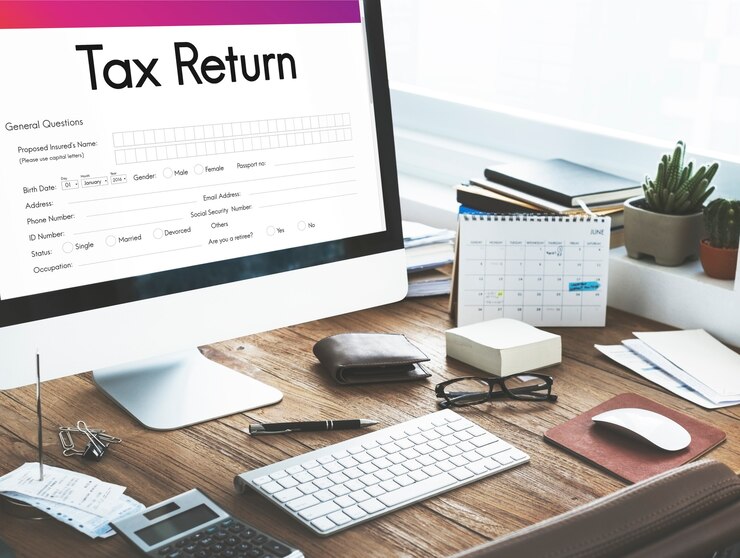Tax preparation can be a daunting task for small businesses. However, understanding the intricacies and employing effective techniques can streamline the process and ensure compliance while maximizing returns.
In this article, we delve into the strategies and insights behind successful small business tax preparation.
Understanding Tax Requirements
Understanding tax requirements is fundamental for small businesses to navigate tax preparation effectively.
By knowing your obligations, including income, payroll, and sales taxes, and staying updated on evolving tax laws, you can ensure compliance and optimize your tax strategy.
Consulting with tax professionals and staying informed through reliable sources are key practices for navigating the complexities of tax compliance.
Know Your Obligations
Before diving into tax preparation, it’s crucial to understand the specific tax obligations applicable to your business.
This includes income taxes, payroll taxes, sales taxes, and any industry-specific taxes. Consult with a tax advisor or accountant to ensure you’re aware of all your tax liabilities.
Stay Updated on Tax Laws
Tax laws are constantly evolving, and staying abreast of these changes is essential. Subscribe to reliable tax news sources, attend seminars, or consult with tax professionals to ensure you’re aware of any new regulations that may impact your business’s tax preparation process.
Organizing Financial Records
Effective small business tax preparation relies on the precise arrangement of financial records. By adopting a systematic strategy and rigorously separating business and personal finances, entrepreneurs can expedite the tax preparation process, guarantee precision, and minimize the likelihood of audits.
Effective record-keeping, supported by digital accounting tools, facilitates real-time insights into financial health and enhances overall financial management practices.
Implement a Systematic Approach
Effective tax preparation begins with organized financial records. Implement a systematic approach to record-keeping throughout the year, categorizing income, expenses, and relevant documents such as receipts and invoices.
Digital accounting software can streamline this process and provide real-time insights into your business’s financial health.
Maintain Separate Business and Personal Finances
Mixing personal and business finances can complicate tax preparation and raise red flags during audits.
Maintain separate bank accounts, credit cards, and financial records for your business to ensure clarity and accuracy when preparing taxes.
Maximizing Deductions and Credits
Maximizing deductions and credits is vital for small businesses to optimize their tax outcomes. By identifying eligible deductions such as rent, utilities, and wages and exploring available tax credits for activities like research and development or hiring disadvantaged employees, businesses can significantly reduce their tax liability.
Keeping detailed records and conducting thorough research are key strategies to maximize tax savings and improve financial health. For example, if a business is in the medical industry, then there is a list of useful tax deductions for doctors who are registered as a business, whether that is a sole proprietorship, partnership, S corporation, or an LLC. This can come in handy during tax time, allowing them that space to ensure they have proper equipment, PPE, supplies, and so on.
Identify Eligible Deductions
Take advantage of all available deductions to minimize your taxable income. Common deductions for small businesses include expenses related to rent, utilities, office supplies, employee wages, and professional services. Keep detailed records of these expenses to support your deductions during tax preparation.
Explore Tax Credits
Tax credits can significantly reduce your tax liability by directly offsetting the amount of tax owed.
Research and identify any tax credits applicable to your business, such as those for research and development, energy efficiency upgrades, or hiring employees from certain disadvantaged groups. Maximizing tax credits can lead to substantial savings for your small business.
Strategic Timing of Expenses and Income
Strategic timing of expenses and income is a tactical approach to manage tax liabilities for small businesses.
By carefully managing when expenses are incurred and income is received, businesses can optimize their taxable income and potentially reduce their tax burden.
Balancing cash flow considerations with tax planning objectives is essential for successful implementation of this strategy.
Manage Timing of Expenses
Strategically timing your business expenses can impact your tax liability. Consider accelerating deductible expenses into the current tax year to reduce taxable income.
For example, purchasing necessary equipment or supplies before year-end can increase deductions for the current tax year.
Delay Receipt of Income
Similarly, delaying the receipt of income until the following tax year can defer tax obligations. If feasible, postpone invoicing clients or customers until the new year to push income into the subsequent tax period.
However, be mindful of cash flow considerations and ensure this strategy aligns with your business’s financial objectives.
Utilizing Retirement Plans and Health Savings Accounts

Utilizing retirement plans and health savings accounts presents strategic opportunities for small businesses to enhance financial well-being while optimizing tax benefits.
By leveraging retirement plans like SEP-IRA or SIMPLE IRA and considering Health Savings Accounts (HSAs), businesses can secure employee benefits, attract talent, and bolster tax advantages.
Consulting with financial advisors can aid in selecting the most suitable options tailored to business needs.
Take Advantage of Retirement Plans
Contributing to retirement plans not only helps secure your financial future but also offers tax benefits.
Small business owners can take advantage of retirement plans such as SEP-IRA, SIMPLE IRA, or solo 401(k) to save for retirement while reducing taxable income. Consult with a financial advisor to determine the most suitable retirement plan for your business.
Consider Health Savings Accounts (HSAs)
Health Savings Accounts (HSAs) offer tax advantages for businesses and employees alike. Contributions to HSAs are tax-deductible, and withdrawals for qualified medical expenses are tax-free.
Offering HSAs as part of your employee benefits package can attract top talent while providing valuable tax benefits for your business.
Seek Professional Assistance
Seeking professional assistance for small business tax preparation is essential for navigating complexities and ensuring compliance.
Tax advisors or CPAs offer expert guidance and outsourcing tax preparation can streamline processes, reduce errors, and free up time for business growth initiatives.
Consult with Tax Professionals
Navigating the complexities of small business tax preparation can be challenging, and seeking professional assistance is often advisable.
Tax advisors or certified public accountants (CPAs) can provide invaluable guidance, ensure compliance with tax laws, and identify opportunities for tax savings.
Consider Outsourcing Tax Preparation
Outsourcing tax preparation to experienced professionals can save time, reduce stress, and minimize the risk of errors.
Outsourced tax professionals have the expertise and resources to navigate complex tax regulations efficiently, allowing you to focus on running and growing your business.
Conclusion
Effective small business tax preparation requires careful planning, organization, and strategic decision-making.
By understanding tax requirements, maintaining organized financial records, maximizing deductions and credits, and leveraging strategic timing of expenses and income, businesses can minimize tax liabilities and maximize returns.
Seeking professional assistance and staying updated on tax laws are essential practices to ensure compliance and optimize tax outcomes. With the right techniques and resources, small businesses can navigate tax season with confidence and financial efficiency.




